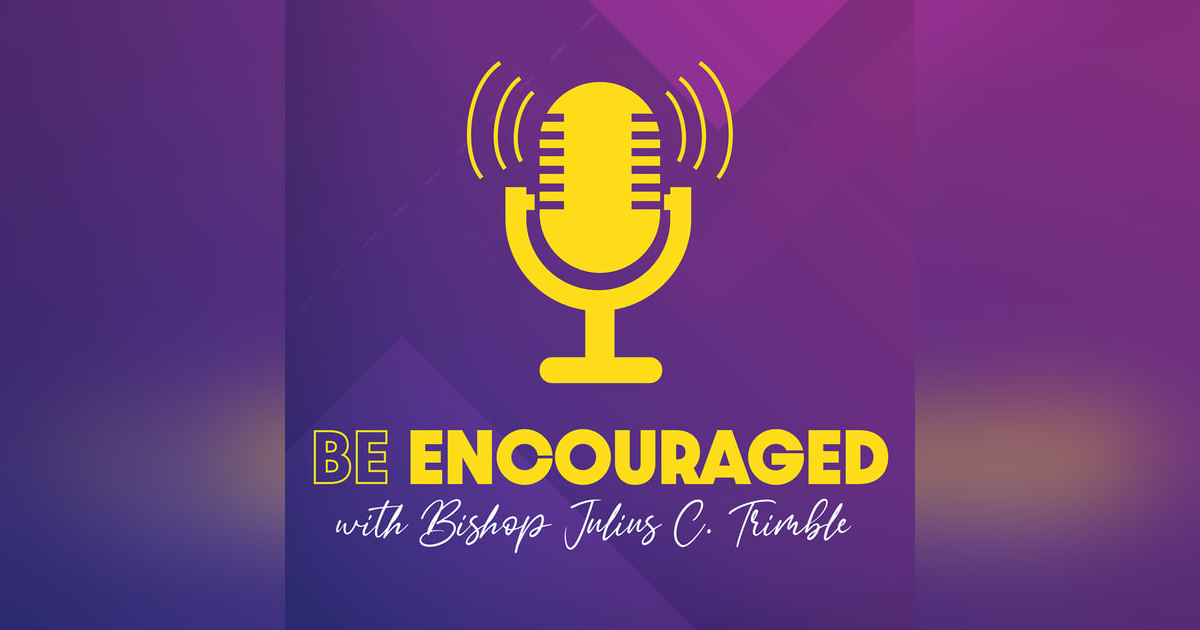"In The Name of Jesus" Bishop Trimble's Sermon at North Central Jusisdiction Conference

Bishop Julius C. Trimble is the Resident Bishop of the Indiana Area of the United Methodist Church.
Bishop Trimble has the personal mission to encourage all people with the love of Jesus Christ to rise to their highest potential. It is his commitment to his personal mission that led Bishop Trimble to create the “To Be Encouraged” Podcast along with co-host Rev.Dr. Brad Miller.
Bishop Trimble says, “I am compelled by Jesus to share with you an encouraging word or two about Jesus, theology, the Bible, the pandemic, the environment, racism, voting rights, human sexuality, and the state of the United Methodist Church.”
To Be Encouraged with Bishop Julius C. Trimble is to be published weekly and is available at www.tobeencouraged.com and all the podcast directories.
https://www.inumc.org/bishop/office-of-the-bishop/
EP.111: Sermon "In The Name of Jesus" presented to North Central Jurisdiction Conference of the United Methodist Church July 11, 2024
In this powerful episode of "To Be Encouraged," Bishop Julius C. Trimble addresses the myriad challenges faced by individuals who have been incarcerated and the critical role the church plays in promoting healing, liberation, and justice. Drawing from his extensive ministry experience and poignant anecdotes, Bishop Trimble urges the congregation and listeners to advocate for systemic changes and embrace the power of faith and community action.
**Key Takeaways:**
**1. Advocate for Justice and Equal Opportunities:**
Bishop Trimble passionately discusses the barriers that formerly incarcerated individuals encounter upon reentry into society. These challenges include difficulties in securing employment, housing, and voter registration due to discriminatory practices and the pervasive stigma of a felony conviction. Trimble calls for the removal of questions about past convictions from job and rental applications and voter registration forms. He emphasizes the importance of equal justice, highlighting the need for policy changes that allow for genuine reintegration and the restoration of dignity and opportunities for these individuals.
**2. The Church’s Role in Promoting Healing and Liberation:**
Throughout his sermon, Bishop Trimble underscores the essential role of the church in addressing societal injustices and supporting those in need. He draws a powerful parallel with Dietrich Bonhoeffer’s denouncement of Nazism and fascism, encouraging the church to be a beacon of hope and a voice for the marginalized. By promoting public policies that serve the common good, such as affordable housing and feeding programs for children, the church can contribute to both immediate relief and long-term systemic change. Furthermore, Trimble shares the inspiring story of a woman who, driven by faith and vision, started a prison visitation ministry with limited resources, leading to significant positive impacts such as reduced recidivism rates.
**3. The Transformative Power of Faith and Prayer:**
Bishop Trimble emphasizes the profound impact of invoking the name of Jesus Christ for healing and empowerment. He shares a moving narrative from the book of Acts, where Peter and John heal a crippled man through their faith. This story serves as a reminder of the ongoing work of Jesus that the church must continue to pursue. Trimble also refers to a walk for peace, where they encountered homeless individuals, highlighting the urgent need for stable housing solutions. By shifting from acceptance of the status quo to active change through prayer and faith-driven action, the congregation can help bring about tangible improvements in their communities.
Join us in this episode as Bishop Trimble shares his wisdom, experiences, and a heartfelt call to action for justice, compassion, and faith-driven community support.
A full transcript of this sermon is available below and the video is available at this link: https://vimeo.com/982680761


